Folk tales: Mehret Mandefro
We meet the Ethiopian producer preparing the next generation
of African storytellers for their moment in the spotlight
Mehret Mandefro has always had bucket-loads of energy. “When I was little, I was running around so much, people would ask my mother: ‘What are you feeding her?” laughs the Ethiopian film producer. “And then, when I was at college, my roommate would say my halftime is everyone’s fulltime. I guess I’ve always had a real curiosity about life. I believe that we’re here for a short amount of time, so you really have to make it count.” For Mandefro, ‘making it count’ has involved forging a career path as long and winding as the Nile. A qualified doctor, the creator of hit TV shows in Ethiopia, a mentor to young filmmakers, an Emmy-nominated producer who’s collaborated with everyone from Alicia Keys to Angelina Jolie, and a newly inducted member of the Academy of Motion Picture Arts and Sciences – it’s a CV that makes the entrepreneur uniquely qualified to be a champion for cinema across, as she calls it, “the most creative continent in the world”.
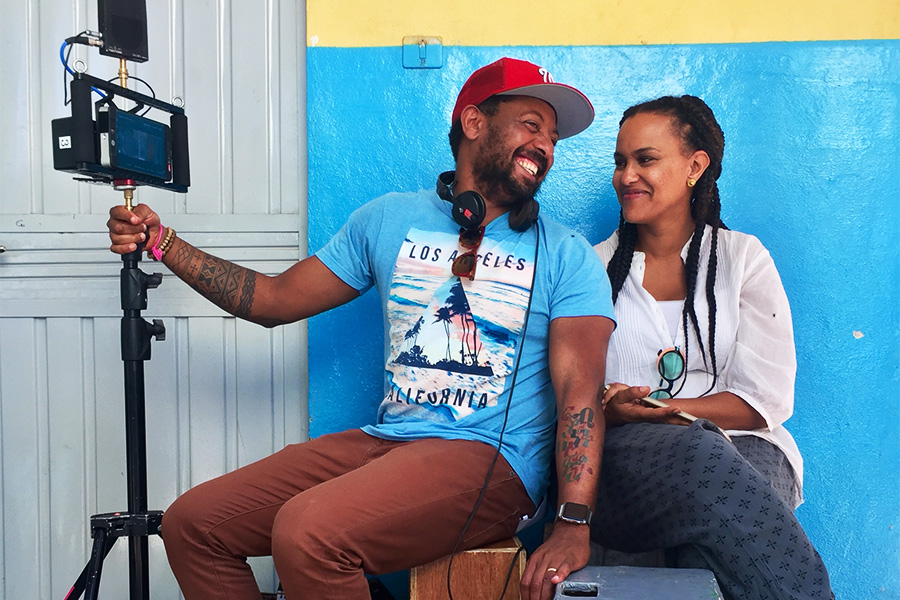
Mandefro and director/husband Zeresenay Berhane Mehari on the set of Sweetness in the Belly in Harar

“I don’t really have the words to describe how much talent there is in Africa – just how many wonderful filmmakers there are out there,” she says. “The storytelling is so rich, and it offers a new vision of society – a new way of doing things and seeing things. Watching films made on the continent is an opportunity to learn about Africa from Africans. A lot of stories about Africa have been told from on outsider’s perspective and it’s been very limiting. Also, Africa is poised to have the world’s biggest workforce, so it’s very much the future – and African film offers a window to that future.”
Mandefro has channelled her love for film and TV into several pioneering enterprises across the world. New York-based media company Truth Aid Media (and its global arm A51 Films) has consistently produced provocative dramas like Ethiopian director Zeresenay Mehari’s award-winning Difret (about the kidnapping of child brides) and the Emmy-nominated documentary How It Feels to be Free, exploring the lives and careers of six iconic African American entertainers.
I don’t really have the words to describe how much talent there is in Africa. The storytelling is so rich, and it offers a new vision of society – a new way of doing things and seeing things.
In Addis Ababa, Mandefro excelled as the executive producer of Kana Television, which creates original content in Amharic (including Ethiopia’s first teen drama series Yegna) and provides on-the-job training to a young workforce with an average age of 24. Such has been the success of Kana (which Mandefro describes as a “content production talent training factory”) the producer is planning to open a TV school in Addis.
Mandefro’s latest initiative might well be her most exciting, though. The Cape Town-based Realness Institute, which she co-founded, is a non-profit that supports and trains the most promising filmmakers and TV writers in Africa and features six training programmes spanning the entire screen industry, from screenwriting and producing, to sales, marketing and distribution. Underlining Africa’s status as an emerging creative hub, the institute has partnered with Netflix, allowing six writers to pitch ideas to the streaming giant after attending writers’ rooms for three months with a creative producer and story consultant.
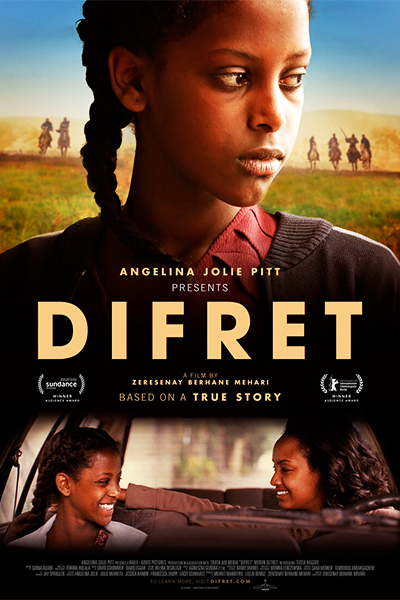
Mandefro is co-founder of Truth Aid Media, which produced this award-winning drama along with Ethiopian director Zeresenay Mehari
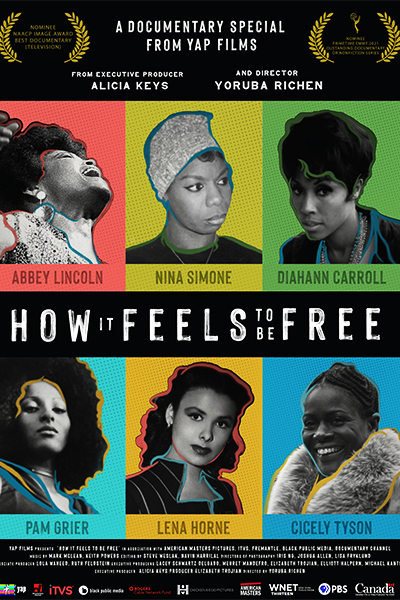
Truth Aid Media also had a hand in How it Feels to be Free, a film exploring the lives of six iconic African-American entertainers
“The first time we did that, we got one green light from Netflix, which we were very excited about,” says Mandefro. “It’s about getting writers access to the industry – empowering storytellers on the continent and shepherding them so their stories can be seen and heard. For us, finding talent is the easiest part. The reality is that because of the internet and the change in the way stories have been told digitally, a lot of creators on the continent have already been getting their stuff out there. The reason Realness exists is to make sure the talent gets the chance to reach an international audience and also deepen their craft.”
If the next generation of filmmakers want inspiration, they need look no further than Mandefro, whose own rise to the top would make for a compelling film. Born in Addis Ababa, she grew up in Virginia, America after her family escaped Ethiopia when the communist regime attempted to assassinate her father Ayalew Mandefro – who was the Minister of Defence at the time. It would be years before Mandefro would devote her life to film, the entrepreneur first earning a medical degree at Harvard.
“I grew up during a time when you had to be an engineer, a lawyer or a doctor if you came from an Ethiopian family,” she says. “If I had found film first, I’m not sure if I would have been a physician. But being a doctor has made me an expert in human behaviour. I’m really good at observing what motivates people. So, my former career as a doctor really informs my work as a writer and producer.”
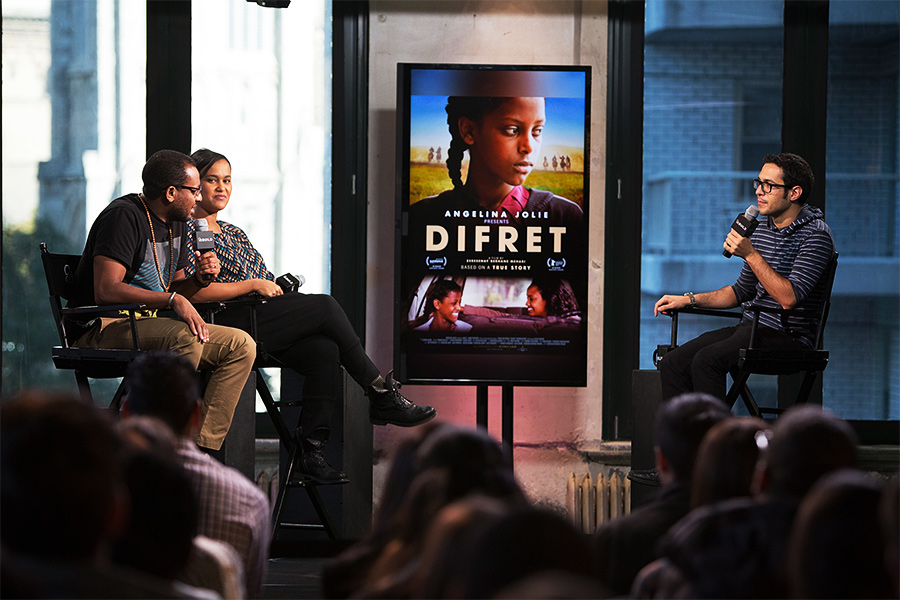
On the promotion trail for Difret / Image: Getty Images

With film completely transforming her life, Mandefro is keen to give young Africans the opportunity to build their own careers in the profession. Her ability to create jobs has been recognised by the Ethiopian government – the producer joining its Jobs Creation Commission Advisory Council to carry out a study on the needs of the film, visual arts and design sectors and make policy recommendations. Subsequently, the creative economy was added to Ethiopia’s National Jobs Action Plan as a ‘high potential services industry’. This led to the launch of private-public partnership Ethiopia Creates, which helps creative industry entrepreneurs through initiatives like film export missions to Europe, where local filmmakers can pitch projects and secure financing. While Ethiopia Creates has stalled somewhat because of Covid a relaunch of the initiative is planned for later this year, with Mandefro pointing out the huge role the creative industry can play in creating jobs quickly.
“Working in film and TV is vocational training,” she says. “You don’t need a four-year degree, so it’s a quicker way to lead to jobs.” When training up new writers, directors, and producers it leads to what Mandefro calls “the multiplier effect”, with many new recruits eventually creating their own production companies. “Over half the people I trained have started their own companies and are working in the market,” the producer explains. “It’s really energising to work with young people and see them become so successful. It’s not until we empower people to understand the business side of the industry that they can also have viable careers.”
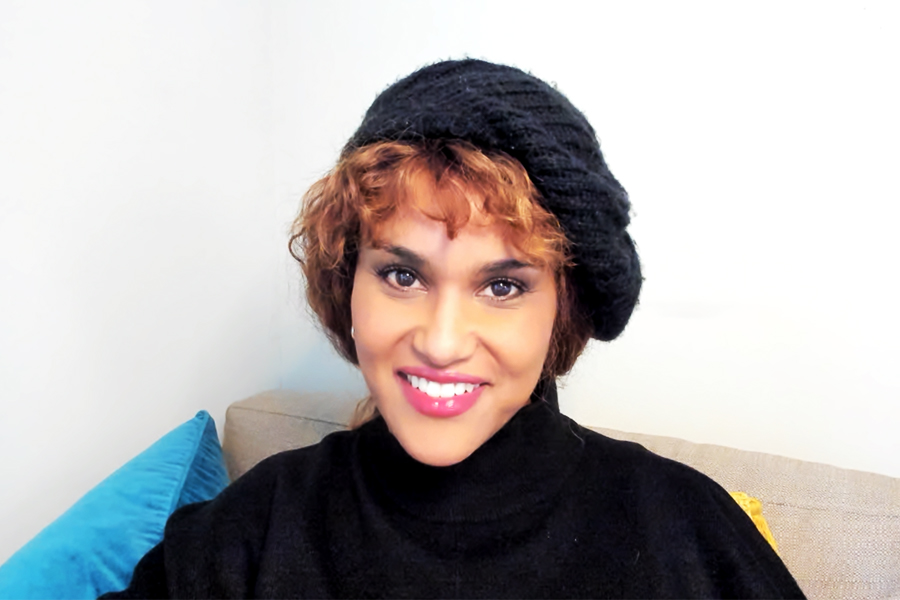
Mandefro splits her time between Cape Town, NYC and Addis, but the latter is where she calls home

While Mandefro divides her time between Cape Town, New York and Addis Ababa, there is no question over where she calls home. Ethiopia is very much her first love.
“Moving back to Ethiopia was a choice,” she says. “For anyone who has ever been disconnected from their homeland – and as a family we were banned for a long time – there’s a longing there. I think everyone should go back and give back to your local community. I think sometimes we make the mistake of trying to fix things outside ourselves before things within ourselves. When I came back to Ethiopia, I immediately realised how much talent there was here and how important it was to impart some of the education I’ve received.”
And there’s no chance that her legendary energy levels will dip anytime soon – not as long as she has a crack team of collaborators around her. “Amazing things are done with amazing people,” Mandefro points out. “My superpower is in collaborating and knowing how to empower people. And, as a collective, the creative industry has so much to offer Ethiopia and Africa as we look towards the future. There’s still a lot of work to be done and I’m just getting started.”
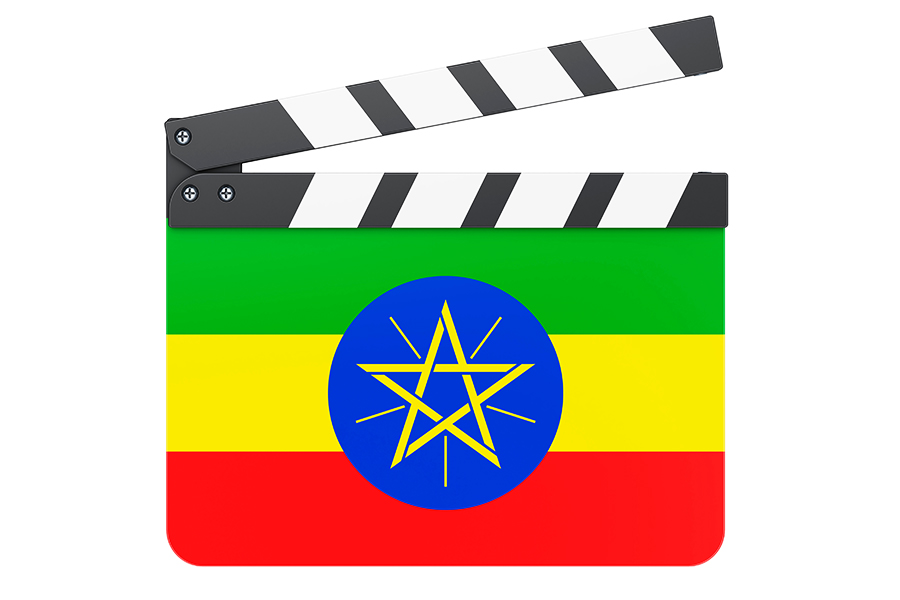

Five up-and-coming African filmmakers making waves
Beza Hailu Lemma (Ethiopia)
One of Ethiopia’s brightest, most driven young talents, Lemma first burst onto the scene in 2017 with short Ballad of the Spirits – following a man looking for answers while wondering the streets of Addis Ababa – before last year producing Among Us Women, a documentary about the changing face of maternal care in rural Ethiopia.
Maia Lekow (Kenya)
The award-winning musician and filmmaker’s brilliant directorial debut, The Letter – a gripping family drama about a 95-year-old grandmother who has to deal with accusations of witchcraft – was described as “exceptionally charismatic” by Variety and was Kenya’s official submission to the Academy Awards in 2020.
Amil Shivji (Tanzania)
A director whose films generally tackle misrepresentations of Africa and its history,
Shivji made history last year when his colonial-era drama Tug of War became the first Tanzanian movie to be screened at the Toronto International Film Festival (TIFF).
Thati Pele (South Africa)
The director behind hit Netflix teen drama Blood and Water and the streaming company’s original series Savage Beauty, Pele has been working on her first feature film Brace Yourself (about an orthodontist who kidnaps her own family), which will be produced by the team behind the Oscar shortlisted drama The Wound.
Olive Nwosu (Nigeria)
Nwosu’s short film Egúngún (Masquerade) which she also wrote, and tells the story of a young woman who returns home to her birthplace Lagos to help her heal, was one of the stand-out offerings at this year’s Sundance Film Festival.